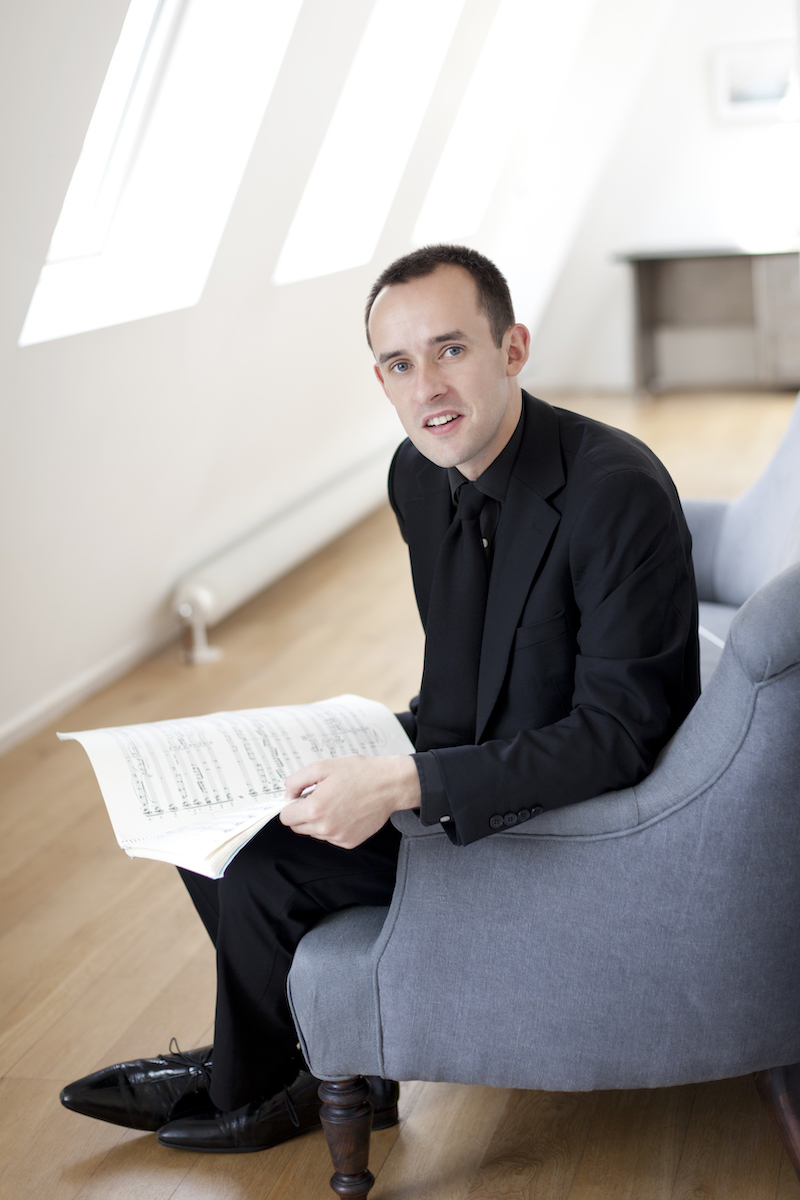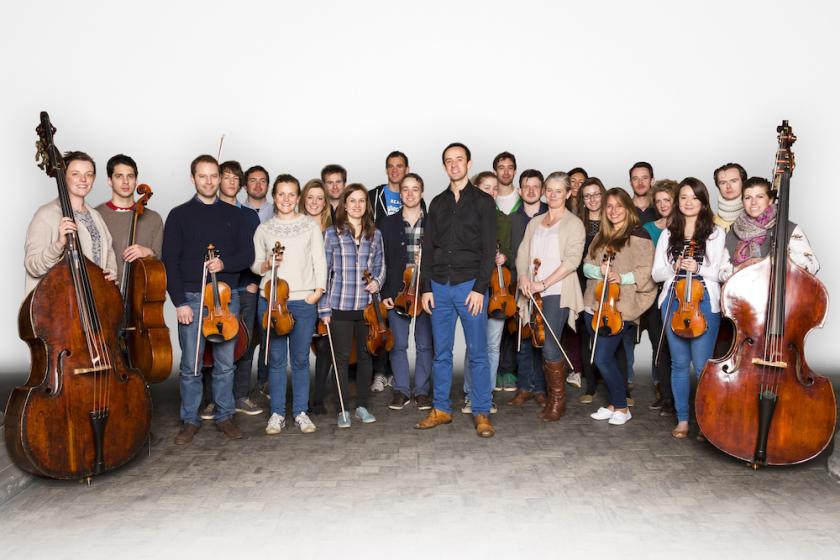The latest instalment of the Americana ’18 series at St John’s Smith Square last Friday saw the Dmitri Ensemble and conductor Graham Ross present a survey of American minimalist music for string ensemble. In a brilliantly conceived programme, the ensemble found fresh energy and propulsion in these classic works, but also a subtlety and humanity in a style that can be mechanistic.
The ensemble of young players, sitting on the floor in the middle of St John’s rather than elevated on the stage, was 13-strong, placing it between a genuine chamber group and a "proper" string orchestra. It allowed for both moments of intimacy but also meaty tutti passages which filled the hall. The players, mostly standing, were able to blend well – this was especially important in Reich’s Triple Quartet – but strong individuals emerged, including leader Jamie Campbell, cellist Alex Holladay and impish principal viola Tetsuumi Nagata.
They started with a work that is neither a classic nor properly minimalist, but which offered an insight into the world that minimalism proper emerged from. David Diamond (1915-2005) is a minor figure in the list of 20th century American composers but in the 1940s, at the time of the composition of Rounds, he was popular and quite widely heard. It’s not entirely clear if his later eclipse was to do with his music or his prickly personality. Rounds presages minimalism fascinatingly in its use of canon and repeating musical cells, although the style is firmly in the world of 1940s Copland. It is a genial piece, not world-shaking, but the players gave an enjoyable account, with fizz and snap where necessary, and pushed on in the high-velocity ending by Graham Ross (pictured below by Benjamin Ealovega).
 Philip Glass’s Company, originally his second string quartet but performed here by the full ensemble, was written as incidental music for a Beckett play. It has all the Glass hallmarks apart from that it doesn’t outstay its welcome, and has a subtlety in its harmony and a fragility that make it perhaps my favourite of his pieces. Here the Dmitri Ensemble found a distant, flutey sound in the quiet passages, very different from the upfront joi de vivre of the Diamond, but also allowed the many repetitions to breathe and live.
Philip Glass’s Company, originally his second string quartet but performed here by the full ensemble, was written as incidental music for a Beckett play. It has all the Glass hallmarks apart from that it doesn’t outstay its welcome, and has a subtlety in its harmony and a fragility that make it perhaps my favourite of his pieces. Here the Dmitri Ensemble found a distant, flutey sound in the quiet passages, very different from the upfront joi de vivre of the Diamond, but also allowed the many repetitions to breathe and live.
Reich’s Triple Quartet of 1999 was perhaps the stand-out performance. Written for the Kronos Quartet to play against two pre-recorded versions of themselves, here all three quartets were on stage together. In its sound it is not like euphonious mid-career Reich but according to the composer his ‘expressionist’ statement, born from a discovery of the quartets of Schnittke. The Triple Quartet has a grittiness which is bracing and arresting and the Dmitri Ensemble went at the music with spirit. There was crisp articulation in the overlapping ostinato rhythms, a blended sound across the quartets making for a pulsing ‘superorganism’ and plaintive, Hebrew-inspired violin solos by Jamie Campbell in the slow movement. It was a revelatory performance of one of Reich’s masterpieces.
Where Reich’s Triple Quartet was the work of a celebrated composer in his 60s, Shaker Loops was the breakthrough work of John Adams when only just out of his 20s. It has an incredible nervous energy throughout, from the hypnotic tremolo opening to the surging, lurching accelerandos of the third movement, flawlessly negotiated by Ross and his ensemble. They brilliantly captured the various moods – eerie, ecstatic, edgy – and in Alex Holladay’s cello solos found a true transcendence.














